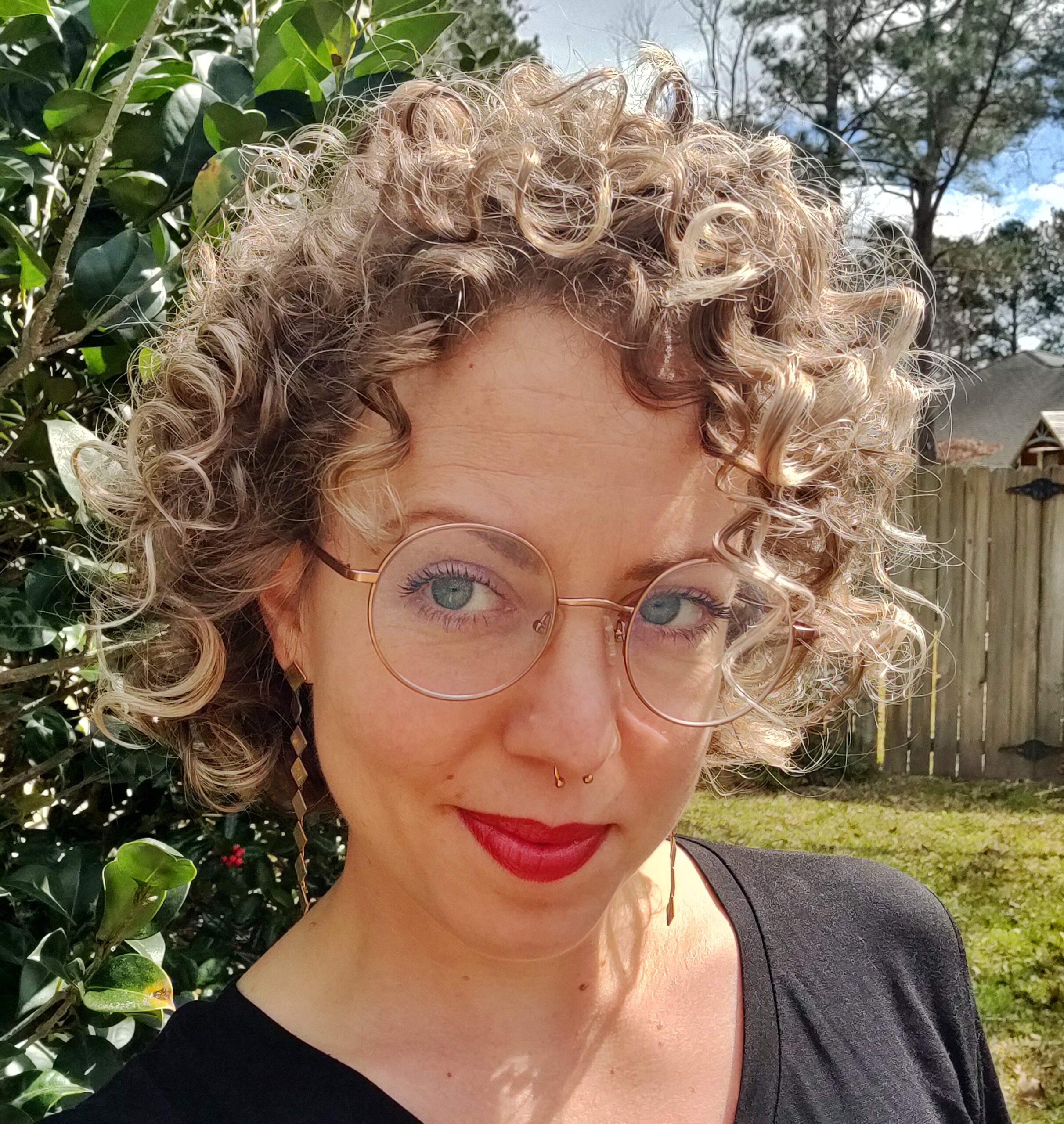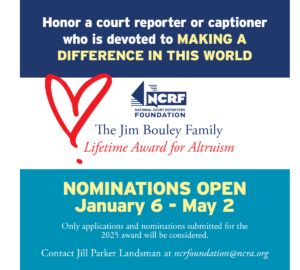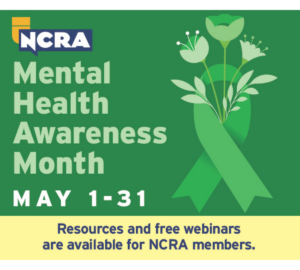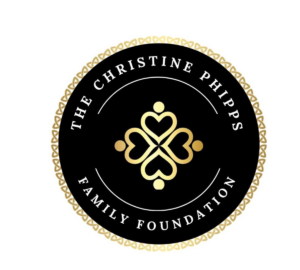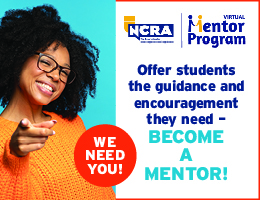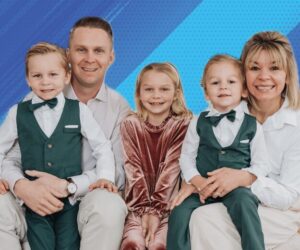Like many participants in the NCRA A to Z® Intro to Steno Machine Shorthand program, Haley Armstrong of Charleston, S.C., was a career-changer. She was working part time while raising her two daughters, but she was looking for a career that she could feel passionate about. “The way words are used (or misused), abbreviations, prefixes, suffixes, and everything in between has always fascinated me,” she says. She found the NCRA A to Z program through a Facebook group and enrolled in a session led by Max Curry, RPR, CRI, a freelancer in Smyrna, Tenn., and a past president of NCRA. After completing the program, Armstrong enrolled in the court reporting program at Alfred State College of Technology in Alfred, N.Y.
“This is a great example of how effectively the NCRA A to Z program is working, identifying our great candidates who are talented and excited about a new career in reporting or captioning after experiencing the program,” says Curry of Armstrong’s journey. “Truly, the NCRA A to Z program is the closest thing to a silver bullet we’re going to find.”
The JCR spoke with Armstrong recently to learn more about her experience.
JCR | How did you hear about the NCRA A to Z program?
HA | I found the NCRA A to Z program by happenstance. I’d been told by a friend about a wonderful Facebook group called “Encouraging Court Reporting Students.” It was in this group that I first heard of the NCRA A to Z program. I Googled it once, and I knew it was going to be the first step in my court reporting journey.
JCR | Did you take the class online or in person? Did you have any interactions with the program leader or other students?
HA | I took the class online. My class had the privilege of being led by Max Curry. I thoroughly enjoyed learning from him and can’t imagine a better introduction to the world of stenography. The class ran for two hours each week and was held via Zoom meetings. It was really great to get to see everyone’s faces – and Max had a camera on his writer as well. It was very helpful to get to see his hands during instruction. We students had plenty of opportunities to interact both with the instructor and with each other. Of course, this was very helpful since we all had plenty of questions.
JCR | What were your impressions of the program? How did you find the ease of access/videos/lessons/quizzes/etc.?
HA | The program was quite easy to comprehend, especially for a complete beginner like myself! I chose the NCRA A to Z program for that very reason. I’d heard it was both the easiest and the most thorough introduction for anyone who wanted to know whether court reporting was the profession they wanted to pursue. The website was very clean, clear, and easy to navigate. The program gave me a stable foundation to build my future career on. I’m very thankful for the opportunity it afforded me in the ability to decide whether court reporting was right for me before I took the leap of enrolling in school.
JCR | How did you decide on Alfred State College of Technology? Did anyone help you or did you do research on your own?
HA | I did my own research in choosing the right court reporting program for me, but I did run it by Max before hitting send on the application submission. I knew that SUNY Alfred was a good choice because they’re NCRA-approved, which was the most important item on my list. They also offer both a certificate and a degree, and the entirety of their programs are available online. This was crucial for me since I live in Charleston, S.C.
JCR | Can you talk a little about your background? How did you first get the idea of being a court reporter? Did you have another career before you started at Alfred?
HA | I’ve been married for 17 years; we have two daughters together. I went to school in my early twenties and worked as a nursing assistant for a few years, but when my younger daughter was born, I decided to find a job that allowed me to work mostly from home. That was about 10 years ago; I’ve been working part-time as a packaging specialist at a laboratory in Charleston ever since. But I knew that job was only what I’d needed at the time, not what I truly wanted. My passion has always been for my mother tongue, the English language. I love everything about it. The way words are used (or misused), abbreviations, prefixes, suffixes, and everything in between has always fascinated me. As my children got older, I began considering my future career options. When I discovered the world of stenography, I knew I’d found something I could pursue continually and never lose interest in.
JCR | What is the best advice you’ve been given so far?
HA | My favorite piece of advice thus far has been to keep my head down and keep practicing. I can’t compare my progress to anyone else’s if I am too busy practicing.
JCR | What are your plans for when you finish school? What is your dream job?
HA | Upon graduation I hope to become an official. The prospect of having a job in a professional setting with set hours, working with people I will come to know and enjoy working with sounds perfect to me. I’ve heard the pay and benefits are pretty nice too!
JCR | If you were to go to a high school career fair to recruit students, what would you say to them about a career in court reporting and captioning?
HA | If I were to speak with younger people making decisions about their future careers, I would say that if they have a passion for English, writing, or learning new languages, and if they will make the choice to practice every day, then they’d be the perfect candidate for this career. It is all about consistency, determination, and pursuing your passion.
JCR | What do you do when you aren’t studying? What are your hobbies?
HA | In my personal life, I love to lift weights and play the piano. But my absolute favorite thing to do is to spend quality time with my husband and our girls. Among our favorite pastimes are going to the beach, going on hikes with our dog Riker, going to local festivals around Charleston, playing Dungeons & Dragons, and cuddling up on the couch to watch a movie or play Mario Kart.
The NCRA A to Z Intro to Steno Machine Shorthand program is a free six-week online course that teaches the basics of steno writing to help participants discover if a career in court reporting or captioning is right for them. Learn more at DiscoverSteno.org.
